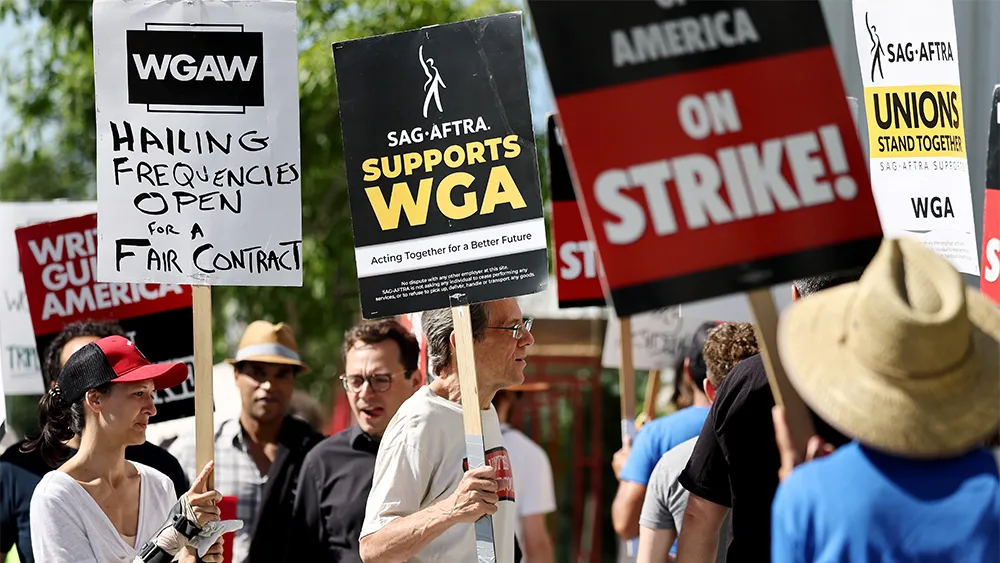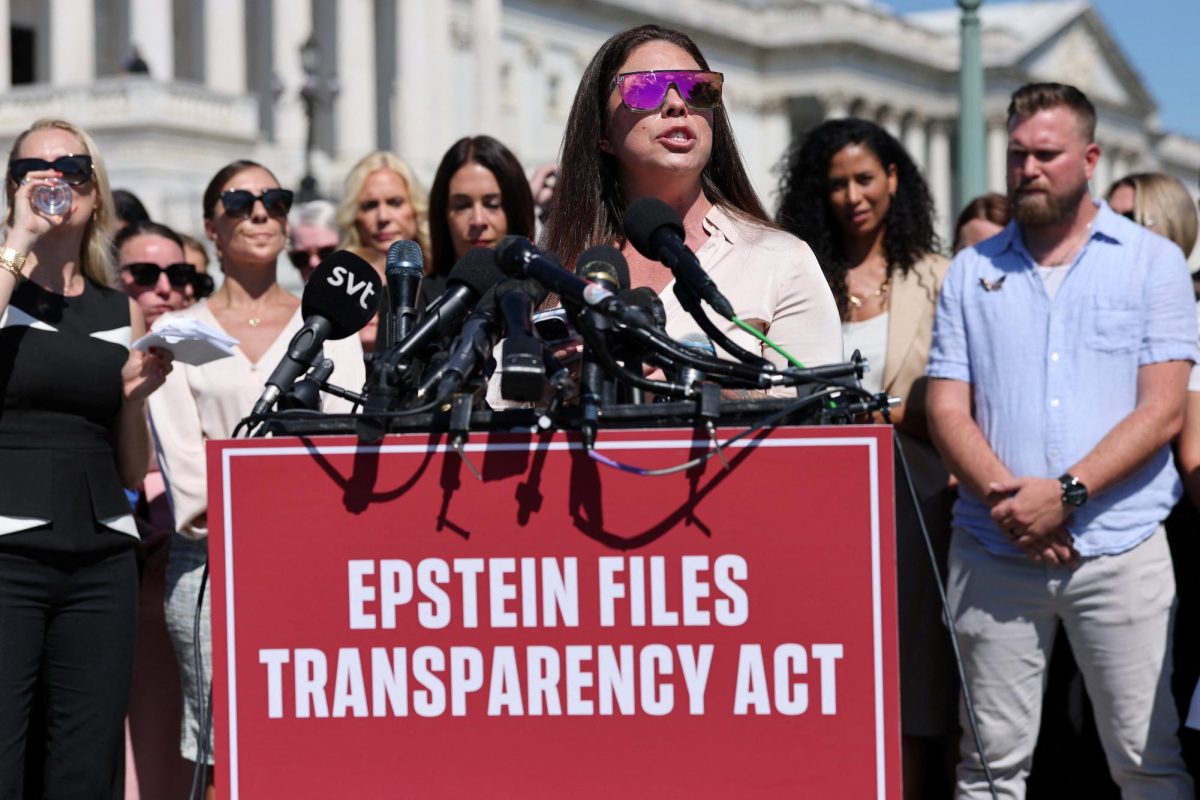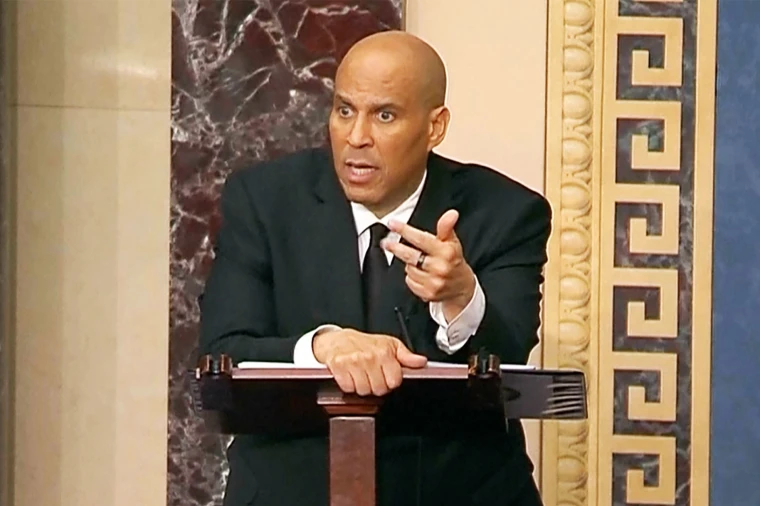On September 27, 2023, the Writers Guild of America (WGA) reached an official agreement with the Alliance of Motion Pictures and Television Producers (AMPTP) to end the five-month-long strike, an incredibly long dispute over AI and streaming preferences that divided the world of film.
The strike was the longest interruption to the film industry since the pandemic shut Hollywood down for two years.
The WGA strike started back at the beginning of May. Problems began to arise as writers for streaming services such as Netflix and Disney+ began to feel as though they were being treated unfairly. A major dispute began between the WGA, which represents about 12,000 Hollywood screenwriters, and the AMPTP, which represents nearly 350 major production studios, including Disney, Warner Bros., Universal, Paramount, and more.
The rise of streaming services has led to massive changes in the film industry. Screenwriters who wrote network shows that would air on CBS or AMC used to have consistent paychecks because network TV was releasing a season a year. The writer’s paycheck was based on the viewership of individual episodes, meaning that they shared the success of the show with the production company. This was a huge advantage for writers, because if your show was successful, that means you made more money.
Now, because of streaming services, network TV has disappeared. Streaming services don’t pay like network TV used to. Instead of sharing profits with writers, the streaming services pay for individual episodes. Writers have fixed paychecks that do not depend on audience viewership. Writers make the same amount whether their show flops or is a booming success, which is detrimental to their income. These fixed paychecks were a massive downgrade from what writers had been paid for network TV. And, because movie studios’ primary goal is to make money, a lot of these paychecks were not up to the standard of what they used to be.
To minimize payment to writers, studios began using new tactics for writing their streaming shows. These were called mini-rooms, which were essentially small groups of writers getting together and writing individual episodes of these streaming TV shows. They were paid a fixed salary, and, since the mini-rooms were groups of writers, studios were able to get away with paying each writer less. This also meant they could switch writers in and out between episodes, so job security was another worry for the WGA.
One of the biggest points of discussion in the writers’ strike is the usage of artificial intelligence in writers’ rooms. Just as streaming services have risen and improved over the past fifteen years, the complexity of AI has also evolved, to a point where the technology can basically write an entire show if a studio wants it to. This has led to writers fearing for their job security as artificial intelligence sneaks its way into the writers’ rooms. Major studios have already begun to use AI in their productions.
All of this tension led to the strike officially starting earlier this year on May 2.
When the strike began, incredible amounts of delays resulted as a consequence. The fifth season of Stranger Things was put on hold. Spider-Man: Beyond the Spider-Verse, the third installment of the acclaimed Spider-Verse trilogy, was supposed to come out in 2024, but after the strike, it was plucked from Sony’s release schedule and is still without a release date. Disney delayed the fifth and sixth Avengers films as well as the rest of the Avatar franchise.
So what did the studios do to fight this strike?
Nothing, really. Writers’ strikes happen. Throughout the short history of Hollywood, the Writers’ Guild of America has gone on strike five times. The studios often respond to these strikes by just doing everything they can to end it so that they can get back to making movies, and, in turn, making money. However, this strike lasted especially long due to an overcrowded market for movies and the excessive greed of these studios to make as much money as possible.
The writers and the studios eventually did come to a tentative deal. In regards to streaming, writers have been granted an 18% increase on exclusively streaming films. They are also guaranteed to have a viewership-based bonus if the film that they write is successful. Writers’ rooms for TV shows have also been given a pay boost as well as more secure jobs.
Artificial intelligence is also being limited as a result of the strike. The new agreement rules that studios cannot use AI to write or rewrite any material. This makes sure that the writer(s) work is not undermined by technology. The use of artificial intelligence in a writers’ room is also no longer a decision made by the studio; now, the writer is the one who chooses whether or not to use AI to assist in the writing process. Finally, studios must inform writers if any materials they are given have incorporated some sort of AI assistance.
The 2023 WGA strike is finally over, which will hopefully point to a better, more collaborative effort in the future between writers and studios.
Categories:
What Happened in the 2023 Writers’ Strike?
Members of the Writers’ Guild of America parade the streets of Hollywood in support of the writers’ strike.
More to Discover
About the Contributor

Aiden Aronoff, Copy Editor
Hey everyone! My name is Aiden. I’m so excited to be your copy editor this upcoming year! I am a senior and this is my third year on the staff of the Spectator. I’m a huge movie nerd and Detroit sports fan! I have my own movie blog, Sweet n’ Sour Movie Blog, where I do movie reviews. I love hanging out with friends, watching movies (obviously!), being active, and reading/writing. Can’t wait for this year!








